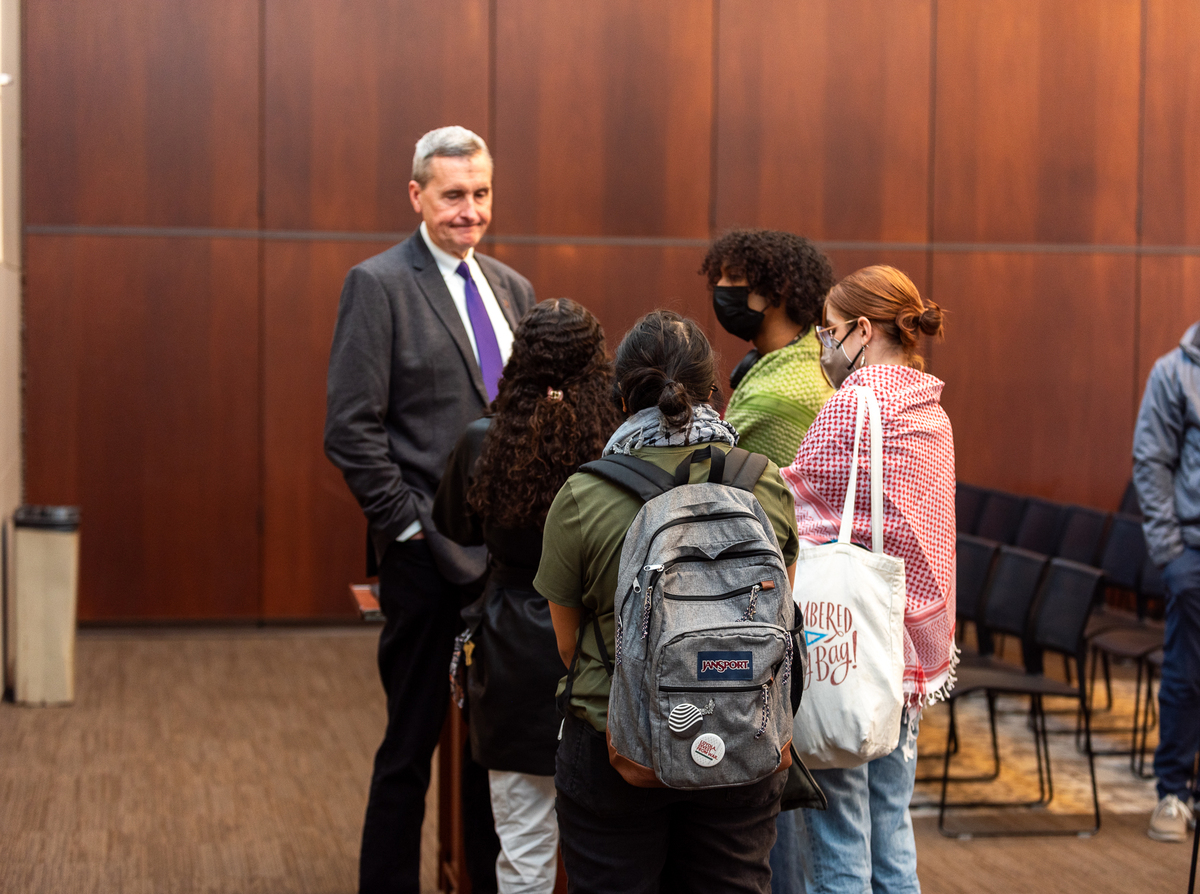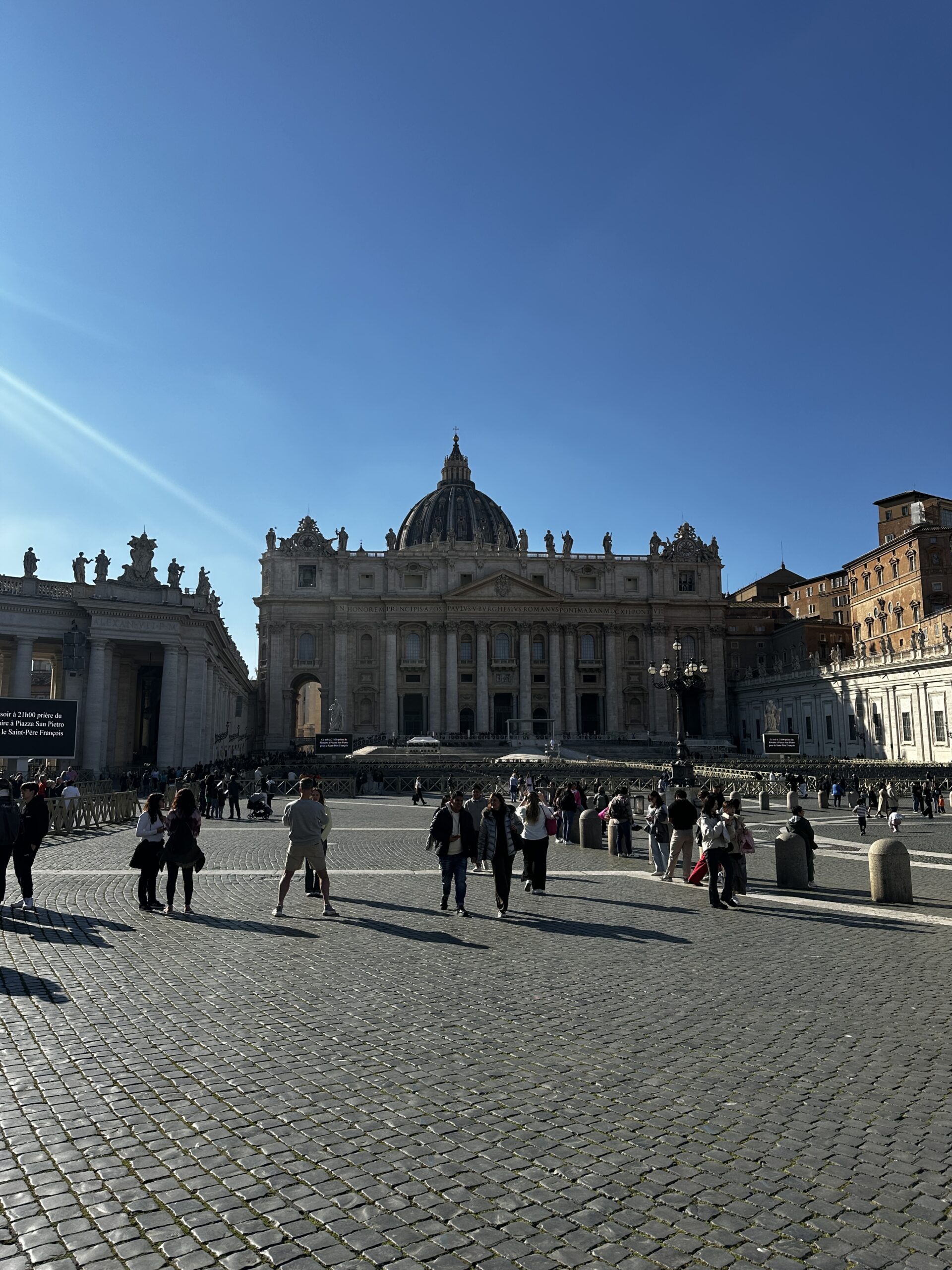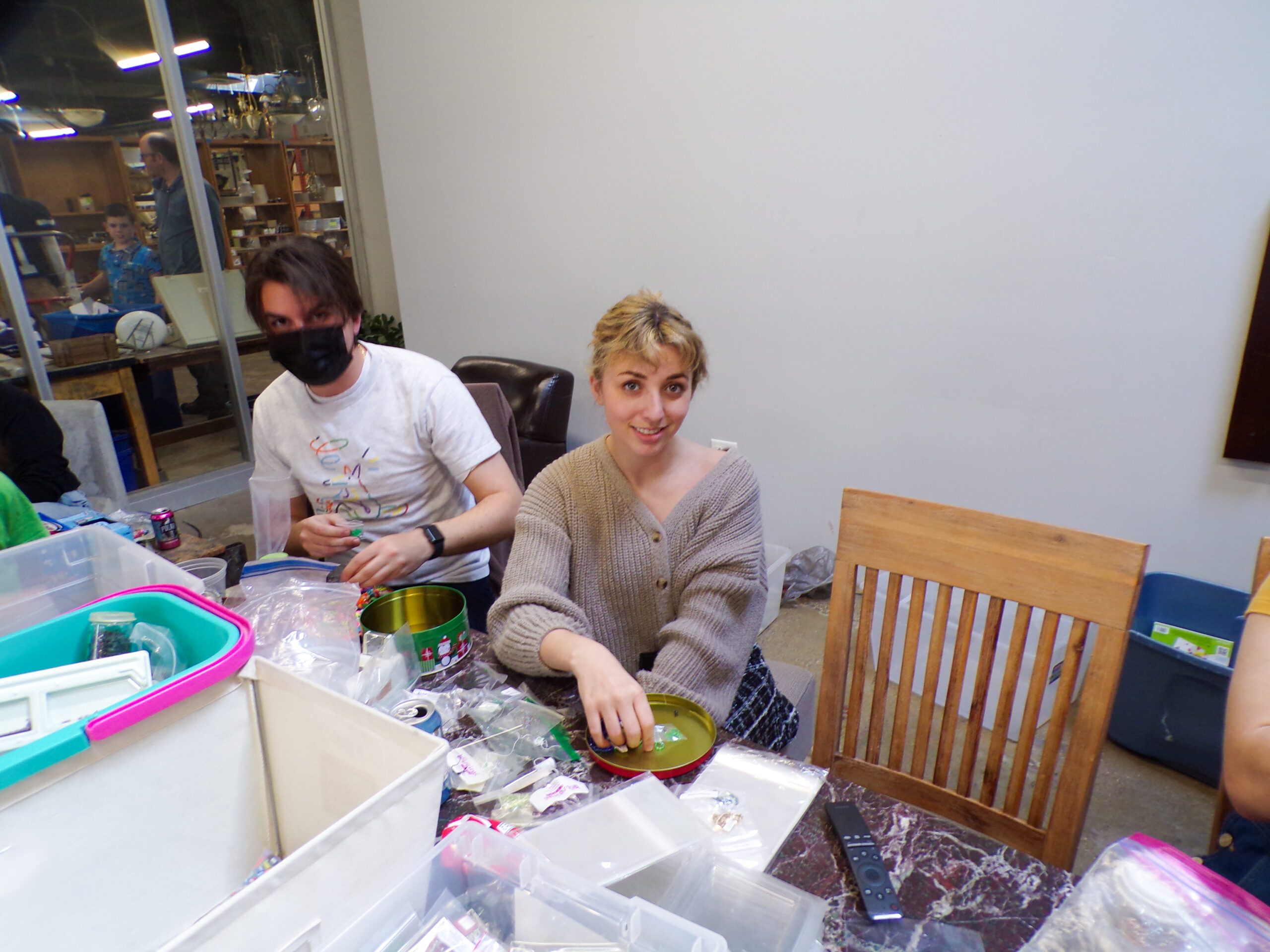In the second series of finance town halls hosted this school year, Wayne Magdziarz — Loyola’s senior vice president, chief financial officer and chief business officer — discussed how trends in higher education are affecting Loyola and detailed the university’s operating budget for the upcoming fiscal year.
In the second series of finance town halls hosted this school year, Wayne Magdziarz — Loyola’s senior vice president, chief financial officer and chief business officer — discussed how trends in higher education are affecting Loyola and detailed the university’s operating budget for the upcoming fiscal year.
Magdziarz began his presentation — which was hosted in the Sister Jean Dolores Schmidt, BVM Multi-Purpose Room Feb. 14 — by discussing issues other universities have been facing including budget shortfalls, staff hiring freezes and budget cuts for university programs.
He said despite problematic industry-wide trends including declining enrollment and increasing expenses, Loyola is in a good position to avoid layoffs or significant budget cuts. This is due to the university being in a good place with its debt level and its ability to maintain a comparatively low tuition discount rate for first-year students, according to Magdziarz.
Forecasts for the current fiscal year project Loyola’s results of operations, or net profit, will total between $10 million and $15 million even though originally the university only budgeted for $5 million in left over funds, according to Magdziarz.
During the current fiscal year Loyola has removed $18.5 million from the operating budget, slightly below the $20 million figure Magdziarz said the university needed to cut at town hall meetings last spring, The Phoenix previously reported.
Magdziarz said the majority of the cuts came from using unrestricted endowment gifts in place of normal operating dollars and from eliminating vacant faculty positions.
Magdziarz said Loyola continues to face challenges in terms of net tuition and in its insurance and utility costs which have been 70% higher than the previous fiscal year due to increased natural gas prices and electricity rates. The university will also be impacted by increasing insurance premium costs in the coming years, according to Magdziarz.
“Sadly, here at this campus we’ve had three 100-year floods in the past six years — lucky us,” Magdziarz said during the presentation. “We’re not alone in the sense that the insurance companies that write policies for higher ed see us as a very high risk.”
Net tuition revenue has continued to decline as Magdziarz said the budgeted first-year class for the upcoming school year will remain the same at 2,750 new students while the first-year discount rate will increase by 1% as financial aid offerings are increasing by $17 million.
Net tuition has also been hurt by declining enrollment from transfer students, which has decreased from around 500 students per year to just 350, according to Magdziarz. He said there is no indication the student population will grow over the next five years due to a decline in college age students over the coming years. Loyola has been preparing for an anticipated enrollment cliff which is expected to begin with the 2025-26 school year, The Phoenix previously reported.
For fiscal year 2025 — which starts in July and will last until June 2025 — Loyola expects total revenue of $697 million with operating expenses totalling $685 million, which will leave $12 million in net profit, according to Magdziarz.
This is less than where the university’s target net profit of $25 million, and expenses will grow by 3.9% while revenues will increase by just 3.4%. Magdziarz said this means Loyola will need to continue to assess its non-salary operating expenses and remove non-essential costs while also emphasizing academic programs that positively impact revenues.
Some breathing room has opened up as the university’s rapid debt reduction plan has brought down interest payments and the major credit rating agencies maintained Loyola’s current bond rating and outlook. Further, fundraising has picked up in recent years, although it still lags behind many of Loyola’s peer institutions.
Magdziarz said in fiscal year 2025, the total cost of attending Loyola will increase from $72,123 to $74,842. The university announced Jan. 22 undergraduate tuition will increase by 3.9% to a total of $52,230, The Phoenix reported. A corresponding 3.4% increase in room and board costs will bring the cost of living on campus to $16,208, according to Magdziarz.
Loyola is back to full occupancy in its residence halls in both Chicago and Rome, he said. The closure and reduction of capacity of residence halls during the COVID-19 pandemic led to decreased revenues in recent years.
The pool for staff and faculty salary increases will see an increase of $2.2 million which is a smaller increase than in previous years due to moderating inflation and an increase in staff retention, according to Magdziarz.
Loyola has 125 open staff positions it’s actively trying to fill, which is less than during the pandemic but still above the desired target of around 80 vacant positions, according to Magdziarz. He said he hopes to see department heads cut down on open positions and redistribute responsibilities to existing staff members.
In the upcoming fiscal year, the university is beginning a three-year reduction in spending on projects relating to physical assets and buildings to begin putting money aside in anticipation of the upcoming completion of the new campus master plan and the large construction projects that will come with it.
The plan anticipates collecting over $100 million in unspent capital funds by fiscal year 2027 while continuing to prioritize maintenance on existing facilities and academic program support, according to Magdziarz. The fiscal year 2025 budget calls for $45 million in capital spending.
A full draft of the final campus master plan is expected to be completed by the end of February and presented to the Board of Trustees in May, he said. Magdziarz said the drafting of a new plan was requested by university President Mark C. Reed and the Board of Trustees in an effort to update the previous plan which is nearly a decade old.
The plan will guide priorities for land use and establish a roadmap for the development of buildings, landscaping, infrastructure, transportation and community connectivity, according to Magdziarz.
“I cannot overemphasize the fact that a master plan is not a prescriptive list of everything that’s going to happen, when it’s going to happen, how much it’s going to cost — it is a blueprint,” Magdziarz said. “It looks at all of our land, it looks at all of our buildings and it starts to identify those pockets of needs that will likely develop over the next 10 years.”
In his presentation, Magdziarz also addressed concerns student activists have been raising over the past two school years regarding the university’s endowment investment portfolio with investments into companies that manufacture weapons, including Boeing and Raytheon.
Many students representing the Coalition for Solidarity and Justice were in attendance and asked critical questions of Magdziarz which accused the university of being complicit in genocide following the presentation. A larger protest was held in the Damen Student Center following the conclusion of the town hall.
Magdziarz said the university’s investment office employs appropriate strategies that reflect Loyola’s commitment to a mission-aligned investment policy which came out of past student-led efforts to see the university divest from companies which profit from fossil fuels.
He said of Loyola’s investments, 7% are held in index funds, which is an indirect investment into the performance basket of companies grouped together such as the S&P 500 Index. He said such indexes include companies that profit from war the university would otherwise avoid.
Companies which don’t fit within the university’s mission represent just 0.32% of Loyola’s total invested funds, according to Magdziarz.
The students were also critical of the decision to remove a student representative from the university’s Investment Policy Committee. Magdziarz said Loyola would be open to reintroducing the position if they found a student who better understands the field and is up to standard.
Featured image by Aidan Cahill / The Phoenix
-

Griffin Krueger is the Editor-in-Chief of The Phoenix. He began working for The Phoenix during his first week at Loyola and has been writing about the university, the surrounding community and the city of Chicago ever since. Krueger previously worked as Deputy News Editor and Sports Editor and is a fourth-year studying political science with a minor in history. Originally from Billings, MT, he enjoys reading and exploring the city on his bike.
View all posts











